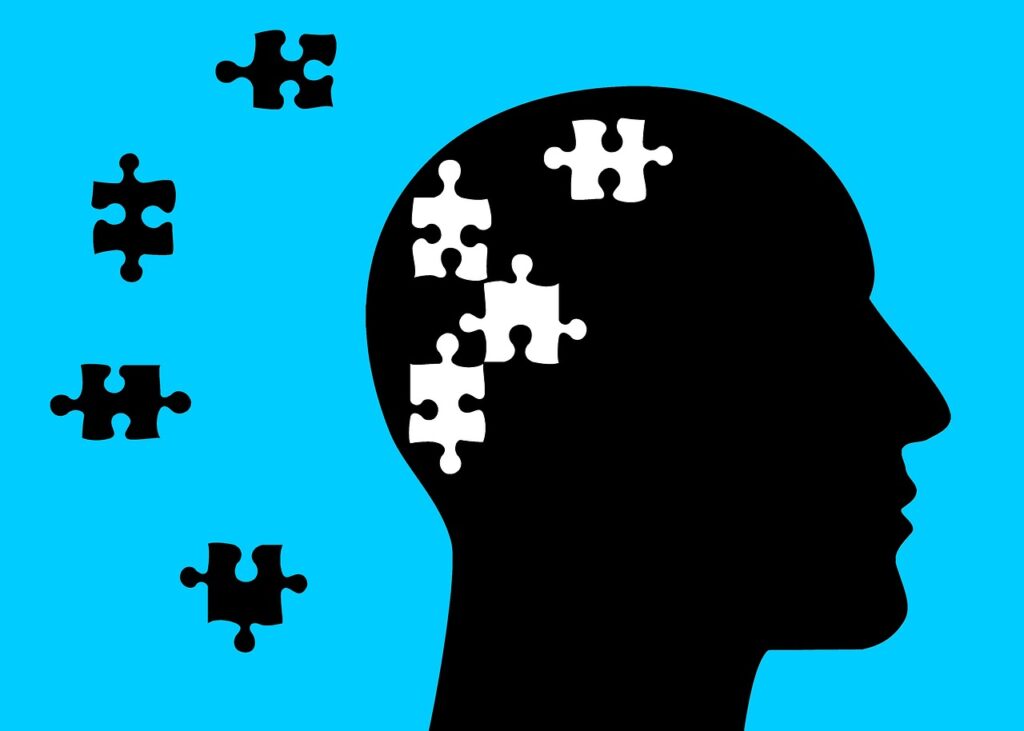So you’re wondering whether your mindset can actually impact your physical and mental health? Well, the answer might surprise you. Recent studies have shown that there is a strong connection between our mindset and our overall well-being. It turns out that our thoughts and beliefs have the power to shape not only how we perceive the world, but also how our bodies respond to stress and illness. In other words, having a positive mindset can actually improve your physical and mental health, while a negative mindset can have the opposite effect. So, next time you catch yourself dwelling on negative thoughts, maybe it’s time to start shifting your mindset for a healthier, happier you.

Effects of Mindset on Physical Health
Mindset and Resilience
Your mindset has a significant impact on your physical health, and one area where this is evident is resilience. Resilience refers to your ability to bounce back from setbacks and adapt to adversity. Having a positive mindset can improve your resilience and help you better cope with stress and challenges.
Mindset and Stress
Stress is a common factor in our daily lives, and it can take a toll on both our physical and mental well-being. However, your mindset plays a crucial role in how you perceive and manage stress. Adopting a positive mindset can help you view stress as a temporary challenge rather than a threat, allowing your body to respond more effectively. On the other hand, a negative mindset can lead to chronic stress, which can have detrimental effects on your physical health, increasing the risk of conditions like cardiovascular disease and weakened immune function.
Mindset and Chronic Pain
Chronic pain can greatly impact your quality of life, but your mindset can influence how you experience and manage pain. Studies have shown that individuals with a positive mindset tend to have a better outlook on pain and cope more effectively. By shifting your mindset and focusing on positive aspects of your life, you can reduce the impact of chronic pain on your physical health.
Mindset and Healing
When it comes to physical healing, mindset plays a crucial role. Studies have shown that individuals with a positive mindset tend to experience faster recovery times after surgery or illness compared to those with a negative mindset. This may be due to the fact that a positive mindset can enhance your immune system, decrease inflammation, and promote healthier behaviors that facilitate healing.
Mindset and Body Image
Your mindset can also impact your body image and how you perceive yourself physically. A negative mindset can lead to dissatisfaction with your body, which can contribute to unhealthy behaviors such as excessive dieting or engaging in disordered eating patterns. On the other hand, cultivating a positive mindset can help you develop a healthier body image, leading to a better relationship with food and exercise and ultimately improving your physical health.
Effects of Mindset on Mental Health
Mindset and Anxiety
Anxiety is a prevalent mental health condition, but your mindset can influence its severity and impact on your life. A negative mindset, characterized by excessive worry and fear, can exacerbate anxiety symptoms. However, adopting a positive mindset can help you manage anxiety more effectively by changing your perception of fear and uncertainty.
Mindset and Depression
Similar to anxiety, your mindset can affect the development and severity of depression. Negative thoughts and beliefs can contribute to feelings of hopelessness and despair, while a positive mindset can promote feelings of optimism and resilience. Developing a growth mindset, where you believe in your ability to learn and grow, can be particularly beneficial in managing depression.
Mindset and Self-Esteem
Self-esteem is an essential component of mental health, and your mindset plays a significant role in shaping it. A negative mindset can lead to low self-esteem, as you may constantly criticize and doubt yourself. Cultivating a positive mindset, on the other hand, can improve self-esteem and help you acknowledge your strengths and accomplishments.
Mindset and Cognitive Function
Your mindset can also impact cognitive function, including memory, attention, and problem-solving skills. Negative thoughts and beliefs can contribute to cognitive distortions, making it harder to think clearly and effectively. However, adopting a positive mindset can enhance cognitive function, allowing you to better focus, process information, and make decisions.
Mindset and Addiction
Mindset can influence the development and recovery from addiction. Negative thoughts and beliefs can contribute to the cycle of addiction and make it harder to break free from harmful behaviors. However, adopting a positive mindset can empower individuals to seek help, develop resilience, and make positive changes in their lives.
Biological Mechanisms Connecting Mindset and Health
Neuroplasticity and Mindset
Neuroplasticity refers to the brain’s ability to change and reorganize itself in response to experiences and thoughts. Your mindset can influence neuroplasticity, shaping neural connections and pathways. By adopting a positive mindset and engaging in activities that promote neuroplasticity, such as learning new skills or practicing mindfulness, you can enhance your brain’s ability to adapt and improve overall health.
Stress Response and Mindset
Your mindset can also impact your body’s stress response. A negative mindset can activate the body’s stress response system, leading to the release of stress hormones like cortisol. Prolonged activation of this response can contribute to chronic stress, which is detrimental to physical and mental health. Conversely, a positive mindset can help regulate the stress response, reducing the impact of stress on your overall well-being.
Mind-Body Connection
The mind-body connection is a complex relationship between your thoughts, emotions, and physical health. Your mindset can influence this connection, as positive thoughts and beliefs can promote overall wellness and improve physical health outcomes. By fostering a positive mindset, you can enhance the mind-body connection and promote better health.
Preventive Health and Mindset
Preventive health behaviors, such as eating a healthy diet, engaging in regular exercise, and getting enough sleep, are crucial for maintaining overall well-being. Your mindset plays a role in adopting and maintaining these behaviors. A positive mindset can motivate you to engage in preventive health practices, leading to better physical and mental health outcomes in the long term.
The Placebo Effect
The placebo effect is a well-known phenomenon where individuals experience positive health outcomes solely due to their beliefs or expectations. Your mindset can influence the placebo effect, as having a positive mindset and belief in a treatment’s efficacy can enhance its effectiveness. This highlights the powerful role of mindset in promoting healing and recovery.
Mindset Interventions for Improved Health
Cognitive Behavioral Therapy
Cognitive Behavioral Therapy (CBT) is a therapeutic approach that focuses on identifying and changing negative thought patterns and behaviors. CBT can help individuals develop a more positive mindset and improve their overall health outcomes. By challenging negative thoughts and replacing them with more positive and realistic ones, CBT can help individuals overcome mental health conditions and improve physical well-being.
Positive Psychology
Positive psychology is a field of psychology that emphasizes the study and promotion of positive emotions, character strengths, and overall well-being. Adopting a positive psychology approach can help individuals cultivate a positive mindset and improve their mental and physical health. Practices such as gratitude exercises, mindfulness, and focusing on strengths and positive experiences can all contribute to a more positive mindset.
Meditation and Mindfulness
Meditation and mindfulness practices have gained significant popularity due to their numerous benefits for mental and physical health. These practices involve focusing your attention on the present moment, cultivating self-awareness, and developing a non-judgmental mindset. Regular meditation and mindfulness can reduce stress, improve resilience, and enhance overall well-being.
Gratitude Practices
Gratitude practices involve intentionally focusing on and appreciating the positive aspects of life. Adopting a gratitude mindset can have profound effects on your mental and physical health. Research has shown that practicing gratitude can increase positive emotions, improve sleep quality, and boost overall life satisfaction. Simple activities such as keeping a gratitude journal or expressing gratitude to others can help cultivate a positive mindset.
Visualization Techniques
Visualization techniques involve creating detailed mental images of desired outcomes or experiences. By visualizing positive scenarios and outcomes, you can promote a positive mindset and enhance motivation. Research has shown that visualization can improve athletic performance, increase pain tolerance, and facilitate goal achievement. Adding visualization techniques to your daily routine can help you cultivate a positive mindset and improve your overall health.

Cultivating a Positive Mindset for Health
Practicing Self-Compassion
Self-compassion involves treating yourself with kindness, understanding, and acceptance, particularly in times of difficulty or failure. Cultivating self-compassion can help you develop a more positive mindset by reducing self-criticism and promoting self-care. By acknowledging your limitations and embracing your imperfections, you can improve your overall well-being and cultivate a healthier relationship with yourself.
Managing Negative Thoughts
Negative thoughts can be pervasive and detrimental to your overall health. Developing strategies to manage negative thoughts can help you cultivate a more positive mindset. Techniques such as cognitive restructuring, reframing, and mindfulness can help challenge and replace negative thoughts with more positive and realistic ones.
Building Emotional Intelligence
Emotional intelligence refers to your ability to recognize, understand, and manage your emotions and the emotions of others. Building emotional intelligence can contribute to a more positive mindset by promoting self-awareness, empathy, and effective emotional regulation. Practices such as practicing empathy, active listening, and self-reflection can help you develop emotional intelligence and improve your overall well-being.
Fostering Social Connections
Social connections play a vital role in our mental and physical health. Cultivating strong and supportive relationships can help promote a positive mindset by providing a sense of belonging, support, and happiness. Engaging in activities that foster social connections, such as joining community groups, participating in hobbies, or volunteering, can significantly improve your overall health and well-being.
Maintaining a Healthy Lifestyle
Adopting and maintaining a healthy lifestyle is crucial for physical and mental well-being. Your mindset plays a significant role in your ability to commit to and sustain healthy habits. By adopting a positive mindset and focusing on the benefits of a healthy lifestyle, you can increase motivation, overcome obstacles, and maintain long-term health habits. Regular exercise, a balanced diet, adequate sleep, and stress management are all essential components of a healthy lifestyle that can be influenced by your mindset.
The Role of Mindset in Physical Recovery
Mindset and Rehabilitation
When recovering from injury or illness, your mindset can greatly impact the rehabilitation process. Having a positive mindset can enhance motivation, resilience, and adherence to rehabilitation protocols. By believing in your ability to recover and focusing on the progress you are making, you can accelerate the healing process and improve physical functioning.
Mindset and Pain Perception
Pain perception is influenced by both physical and psychological factors, and your mindset plays a crucial role in how you experience pain. Adopting a positive mindset can help modulate pain perception by altering the way your brain processes pain signals. By focusing on positive experiences and finding ways to manage pain effectively, you can minimize its impact on your overall well-being.
Beliefs and Expectations in Healing
Your beliefs and expectations about healing can significantly impact the recovery process. Studies have shown that individuals with positive beliefs and expectations about their ability to heal tend to have better outcomes. By cultivating a positive mindset and fostering a belief in your body’s capacity to heal, you can enhance the healing process and improve physical recovery.
Mindset and Adherence to Treatment
Adherence to treatment plans is critical for successful recovery. Your mindset can influence your commitment to treatment and your ability to follow through with prescribed therapies. A positive mindset can increase motivation, belief in the effectiveness of treatment, and the likelihood of adhering to treatment recommendations. By adopting a positive mindset and actively participating in your recovery, you can optimize your physical health outcomes.
Mindset and Post-Surgery Recovery
Post-surgery recovery can be a challenging process, both physically and emotionally. Your mindset can significantly impact post-surgery recovery outcomes. A positive mindset can improve your energy levels, decrease pain, and enhance overall well-being during the recovery process. By focusing on your body’s capacity to heal and taking an active role in your recovery, you can facilitate a smoother and faster recovery from surgery.

Mindset and Longevity
Mindset and Aging
Aging is a natural process, but your mindset can influence how you experience and adapt to it. Research has shown that individuals with a positive mindset about aging tend to live longer, healthier lives. By embracing aging as a normal part of life and focusing on the positive aspects of growing older, you can enhance your well-being and longevity.
Mindset and Stress Effects
Chronic stress is a significant contributor to various health problems and can accelerate the aging process. Your mindset plays a crucial role in how you perceive and respond to stress, ultimately affecting its impact on your health and longevity. Cultivating a positive mindset can help buffer the negative effects of stress and promote healthier aging.
Mindset and Cellular Health
Psychological factors, including your mindset, can influence cellular health. Negative thoughts and chronic stress can contribute to cellular damage and accelerated aging. On the other hand, a positive mindset can promote cellular health by reducing oxidative stress and enhancing cellular repair mechanisms. By adopting a positive mindset, you can positively influence the health and longevity of your cells.
Mindset and Chronic Illness
Living with a chronic illness can be challenging, but your mindset can significantly impact your overall well-being. A positive mindset can help individuals with chronic illnesses cope more effectively, manage symptoms, and maintain a higher quality of life. By focusing on what is possible rather than dwelling on limitations, you can improve your physical health outcomes and overall well-being.
Mindset and Healthy Habits
Adopting and maintaining healthy habits is vital for longevity and overall health. Your mindset plays a crucial role in your ability to establish and sustain these habits. Cultivating a positive mindset can help you stay motivated, overcome obstacles, and commit to healthy habits such as regular exercise, balanced nutrition, and adequate sleep. By adopting a positive mindset, you can promote long-term health and enhance your overall well-being.
Mindset and Personal Growth
Mindset and Resilience
Resilience, the ability to bounce back from adversity, is closely tied to personal growth. Your mindset plays a significant role in developing resilience and embracing challenges as opportunities for growth. By adopting a growth mindset, where you believe in your ability to learn and develop, you can enhance your resilience and navigate life’s obstacles with greater ease.
Mindset and Goal Achievement
Your mindset can influence how you approach and achieve goals. A positive mindset can enhance motivation, self-efficacy, and perseverance, all of which are crucial for goal achievement. By setting realistic and meaningful goals, cultivating a positive mindset, and adopting strategies to overcome obstacles, you can improve your ability to accomplish your goals and foster personal growth.
Mindset and Learning
Your mindset also impacts your ability to learn and acquire new skills. A growth mindset, where you believe that intelligence and abilities can be developed through effort and practice, can enhance your learning potential. By embracing challenges, seeking out new experiences, and persisting in the face of obstacles, you can foster personal growth and maximize your learning abilities.
Overcoming Limiting Beliefs
Limiting beliefs are negative thoughts or assumptions that hold you back from reaching your full potential. Your mindset plays a crucial role in overcoming these limiting beliefs and fostering personal growth. By challenging and reframing these beliefs, adopting a growth mindset, and seeking opportunities for self-improvement, you can break free from limitations and embrace personal growth.
Developing a Growth Mindset
Cultivating a growth mindset is essential for personal growth. A growth mindset involves believing that skills and abilities can be developed through effort, practice, and learning from failure. By embracing challenges, viewing setbacks as opportunities for growth, and focusing on continuous improvement, you can cultivate a growth mindset and unlock your full potential.
The Influence of Environment on Mindset and Health
Social Determinants of Health
Your environment plays a significant role in shaping your mindset and overall health outcomes. Social determinants of health, such as socioeconomic status, access to healthcare, education, and community support, can influence your mindset and well-being. Creating environments that promote positive mindset and well-being, with a focus on reducing disparities and providing equal opportunities, is crucial for improving health at a population level.
Cultural Factors and Mindset
Cultural factors also shape your mindset and influence health outcomes. Different cultures have unique beliefs, values, and traditions that impact how individuals perceive health, seek healthcare, and engage in self-care practices. Acknowledging and respecting cultural diversity, and promoting culturally sensitive healthcare and policies, can help foster positive mindsets and improve health outcomes for diverse populations.
Family and Peer Influences
The people you surround yourself with, including family and friends, can have a significant impact on your mindset and health. Family and peer influences shape your beliefs, behaviors, and attitudes towards health. Building supportive relationships and fostering positive social connections can positively influence your mindset, enhance well-being, and improve health outcomes.
Educational and Workplace Environments
Educational and workplace environments play a crucial role in shaping mindset and health outcomes. Supportive and empowering educational environments can foster a growth mindset and promote overall well-being. Similarly, positive and inclusive workplace environments that value employee well-being, provide opportunities for growth, and support work-life balance can positively impact mindset and contribute to better health outcomes.
Media and Mindset
The media we consume, including television, movies, social media, and news outlets, can shape our mindset and influence our perceptions of health. Media messages can perpetuate unrealistic beauty standards, promote negative body image, and contribute to a negative mindset. Being mindful of media consumption, critically evaluating messages, and seeking out positive and diverse representations can help shape a healthier mindset and improve overall well-being.
Mindset and Health in Different Life Stages
Mindset in Childhood
Children’s mindset and beliefs greatly impact their health and well-being. Nurturing a positive mindset in childhood can foster resilience, promote healthy habits, and lay the foundation for lifelong well-being. Encouraging positive self-talk, promoting a growth mindset, and providing a supportive environment can contribute to a positive mindset in children and improve their overall health.
Mindset in Adolescence
Adolescence is a critical period where mindset and mental health can significantly impact well-being. Adolescents may struggle with self-esteem, body image, and academic pressures. Fostering a positive mindset, emphasizing resilience and self-compassion, and providing resources for mental health support are essential for promoting positive mental health and overall well-being during this stage of life.
Mindset in Adulthood
In adulthood, the responsibilities and challenges of work, relationships, and family can greatly impact mindset and health. Cultivating a positive mindset, prioritizing self-care, and nurturing supportive relationships are crucial for maintaining mental and physical well-being. Making time for stress management, engaging in hobbies, and seeking personal growth opportunities can also contribute to a positive mindset and overall health in adulthood.
Mindset in Older Adults
As individuals age, mindset becomes increasingly important for physical and mental well-being. Adopting a positive mindset about aging, embracing new experiences and challenges, and maintaining social connections can enhance overall well-being in older adults. Engaging in lifelong learning, practicing gratitude, and staying physically active are also essential for promoting a positive mindset and healthy aging.
Mindset and Late-Life Transitions
Late-life transitions, such as retirement, loss of loved ones, or changes in health, can greatly impact mindset and well-being. Navigating these transitions with a positive mindset, seeking support, and focusing on personal growth and resilience can contribute to positive mental and physical health outcomes. Engaging in activities that provide a sense of meaning and purpose can also help individuals navigate these transitions with greater ease and promote overall well-being.

